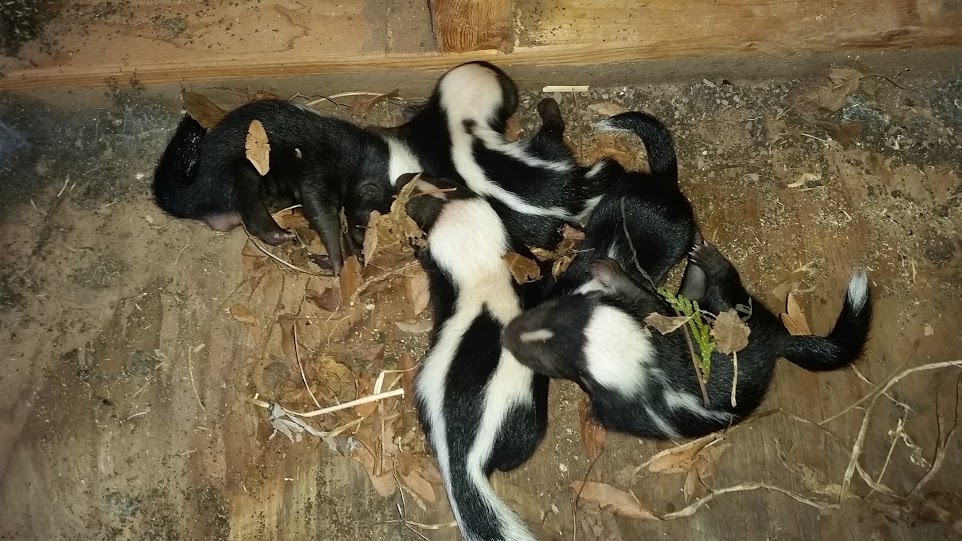Skunks don’t smell very good, but they sure are cute. Their black and white coats, their bushy tails and their little legs just make them look nice and cuddly. Although you might want to scoop them right up, you shouldn’t ever approach a skunk. Not only will you run the risk of being sprayed with that pungent odor, you also run the risk of being injured by their sharp claws and teeth. This doesn’t mean you have to live with their noise, their smells and their disruptions. When the situation calls for skunk removal in Oshawa, you need to call in the professionals before it gets out of hand during mating season.
When Is Mating Season?
Most skunks mate sometime between February and March, depending on the age of the female. When a male skunk approaches a female, she will let him know if she’s not ready to mate by spraying him with an aroma that repels him. This sometimes happens when a female has already mated and is pregnant, or if she’s not quite old enough to mate. When female skunks are born later in the season, they won’t be ready to mate until later in the next season. This could mean a female skunk will wait until early April to mate.
If a young female does wait until early April to mate, you run the risk of putting up with the noises, damages and smells of that particular skunk as males court her starting in February. This is just one of many reasons to have the skunks taken care of before mating season.
How Many Pups Are in a Litter?
A skunk litter can push your problem out of control. Most females will give birth to somewhere between four and six pups. The older the female, the more babies she typically births in a season. One male skunk could breed multiple females in one year. If there are multiple females on your property, even with only one male, you could possibly end up with dozens of skunks as they breed each year.
When a litter is born, they are nursed by their mothers for about six weeks. After that six-week period, they are allowed outside the den with their mother to start looking for food and learning how to live life on their own. By two months of age, the babies are typically weaned completely. By fall, so when the babies are approximately six months old, they head off on their own to create a life for themselves. Some skunks will travel to a neighboring yard, others will go five miles from home, and in extreme cases, they could travel up to around 30 miles.
What Should You Do About Skunk Removal Oshawa Services?
If you have an issue with a skunk, it’s important you take care of it as soon as possible. You want to avoid having to deal with the skunks when they are pregnant or caring for their young. This is when females are most aggressive, and males are most aggressive during mating season. We can safely remove mother skunks and their young, though we prefer to handle the situation before it gets to that point.
When you realize there are skunks living on your property, it’s important you contact the skunk removal Oshawa professionals right away. Do not ever approach the skunks, no matter how cute you think they are. They’re wild animals, and just like any other wild animal, they pose serious risks to humans. Instead, contact Skedaddle Humane Wildlife Control and let’s discuss the options we have to safely get them off your property and relocated back into the wild.



